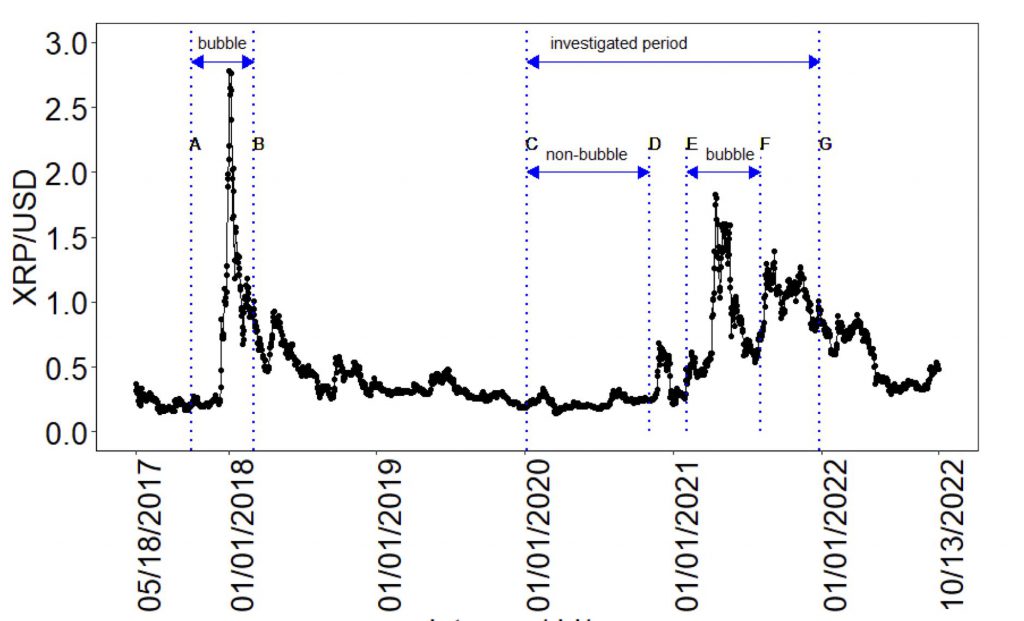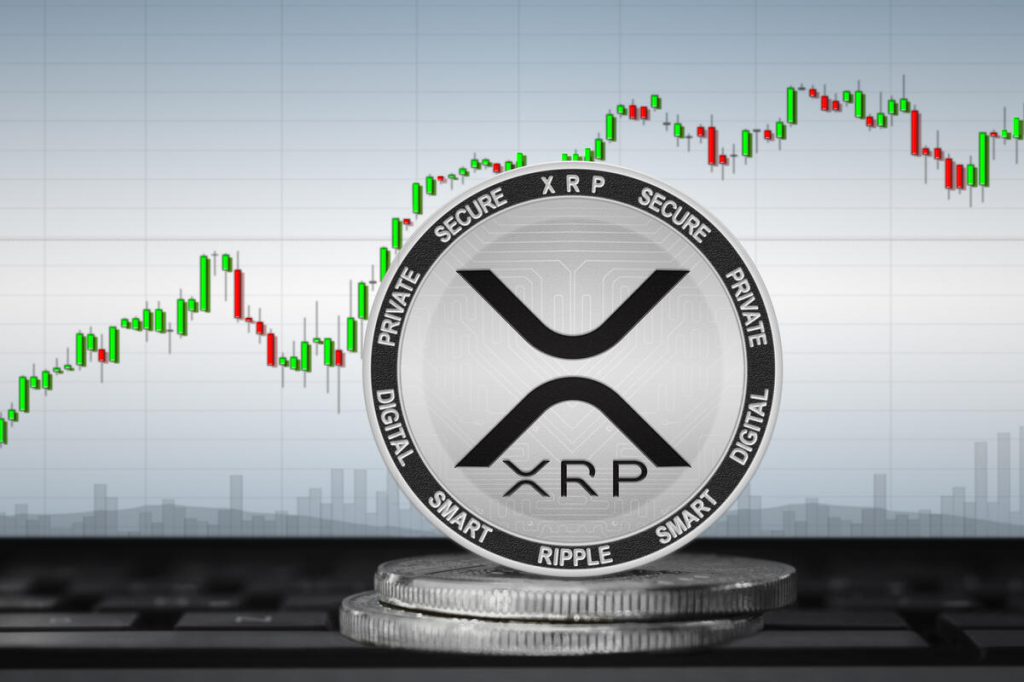Researchers from Kyoto University, Japan, have found a new relationship between XRP’s price and its complex web of transactions. According to the study, there is an anti-correlation during volatile market periods.
The researchers covered XRP’s price from January 2020 to December 2021, covering both bubble and non-bubble periods. The main fundamentals of the study lie in the correlation tensor spectra. A tensor spectra is a mathematical tool for deciphering the structure and connections of a network. It aids in the uncovering of patterns and relationships between nodes in a network.
Also Read: Japan’s SBI Confirms XRP Utility for International Remittance


As per the study, when XRP’s price increased, some values taken from transaction data declined. When prices decreased, the transaction data increased. Moreover, there was no correlation between price and the largest singular value during the non-bubble period. However, during the bubble period, a strong anti-correlation began to emerge. When more people began using XRP for transactions, the price began to drop, as there was also likely an increase in selling.
The study also found a special, super active group of users during bubble periods who had a say in the price movements of the token. This group is more akin to crypto whales, directing the market movement during volatile moments.
Is XRP more centralized than we think?


A patent has been making the rounds on social media, which questions how decentralized the XPRL network really is. According to reports, Ripple’s Chief Technology Officer, David Schwartz, filed a patent for a Bitcoin (BTC)-like network back in 1988. This challenges the notion that the XRP Ledger (XRPL) was founded in 2011 by Schwartz, Jed McCaleb, and Arthur Britto.
The patent talks about a distributed network of computers for data processing. Each node in the network would process only a portion of the data. Although the patent does not mention Ripple or blockchain, there is no denying its similarity to the XRPL. Moreover, many have shared the patent and criticized Ripple, calling the network centralized.
Also Read: XRP Lawyer Explains Legality of Ripple’s Sales Outside the U.S.





